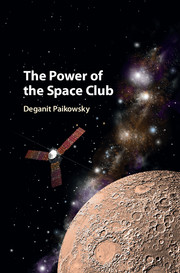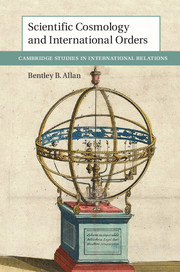The Power of the Space Club
Why do nation states choose to develop national space programs? How can they justify national efforts to acquire capabilities by arguing for membership of the space club? This book provides a unique perspective of the past, current and future of space exploration and technological development in world politics. A country that sees itself as a power deserving of a seat at the table of world governance is expected to race for space. Based on a rich and detailed analysis of a range of space programs of states which are not usually at the focus of world politics and its research, the author shows that joining the space club is a legitimate and rational decision. The book provides a different way of looking at international relations, through a relatively under-studied area of policy - the space club.
- Allows readers to see the inner working of foreign policy decision making through the decision on whether or not to pursue a national space program
- Provides a range of case studies including states which are not normally studied
- Presents a unique and insightful perspective on the factors that drive states to indigenously develop world-class space technology
Reviews & endorsements
Advance praise: ‘A fresh look at the international politics of space activity with well-researched case studies. Paikowky's book is a valuable addition to the field.' James Clay Moltz, Naval Postgraduate School, Monterey, California
Advance praise: 'Advanced space capabilities provide a nation state with both tangible and symbolic geopolitical, strategic, and security benefits. By using the concept of a ‘space club’ as a way to analyze a state’s decision to acquire those capabilities and competition and cooperation among space faring countries, Deganit Paikowsky provides fresh insights and a productive way of understanding global space activity.' John Logsdon, Professor Emeritus, George Washington University and Founder of George Washington University’s Space Policy Institute
‘Paikowsky has made an excellent foray into the theorization of astropolitical prestige in international relations. This book is a welcome addition to the nascent field of astropolitics in IR, and demonstrates that astropolitics is the continuation of terran politics by other means.’ Bleddyn E. Bowen, International Affairs
Product details
May 2017Adobe eBook Reader
9781108173490
0 pages
0kg
4 b/w illus. 7 tables
This ISBN is for an eBook version which is distributed on our behalf by a third party.
Table of Contents
- List of figures
- List of tables
- Acknowledgments
- 1. Introduction
- 2. Nation-state clubs in world politics
- 3. The evolution of the space club
- 4. A multilateral race for space club membership
- 5. France and Britain
- 6. Canada and Australia
- 7. India and Israel
- 8. The space club in the post-Cold War era
- 9. Conclusions and future directions
- Bibliography
- Index.









